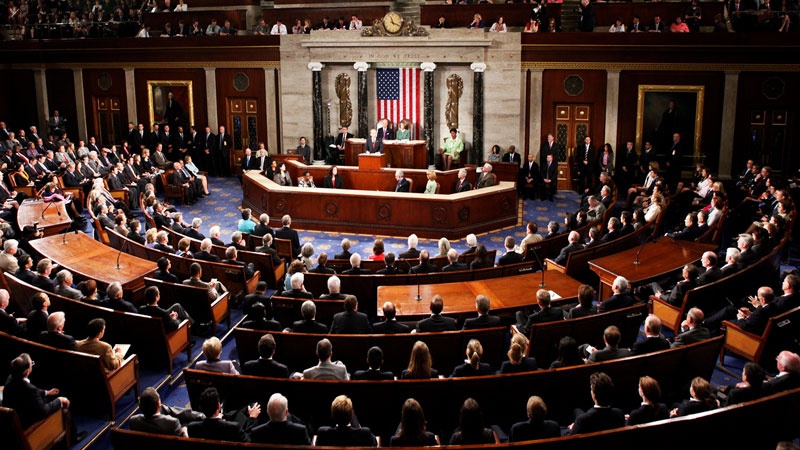July 22, 2016

The US House of Representatives last Thursday passed legislation imposing more sanctions on Iran for its missile work, human rights violations and acts of terrorism.
No sanctions were imposed for Iran’s nuclear program. The bill drafters thus avoided proposing any actions contrary to the nuclear agreement with Iran, which bars new nuclear sanctions but does not bar sanctions for other purposes.
The White House has said the president will veto any bills that would violate the nuclear agreement, but it hasn’t said what particular bill before Congress would violate the deal.
Two bills were passed by the House last week. The first, HR 5631, provides for new sanctions. The second, HR 4992, is designed to keep Iran from getting access to the US financial system.
The bills now go to the US Senate, which may not even take up either House bill because a group of senators has been working on a different agenda of bills aimed at Iran. But the Senate and House recessed for seven weeks (to allow members to attend the two party conventions) and it isn’t known when any Iran bills will be voted on in the Senate. It had been planned to vote on them last week, but the Senate did not take them up before recessing.
The first House bill imposes sanctions on the Supreme Leader, the president and dozens of other senior officials of the Islamic Republic. While this sounds dramatic, the sanctions are the same pair applied to others for years—they are barred from receiving visas and any assets belonging to them and found inside the United States are frozen. (The visa ban is lifted for visits to the United Nations.) The sanctions, in other words, have little real impact. A report issued by the Treasury Department a few weeks ago shows that no assets have been frozen in the United States for any individual sanctioned for acts of terrorism. Such sanctions are intended more for show than anything practical.
The first House bill also requires the Treasury Department to put together a list of what the Pasdaran own in Iran. The bill does not explain the reason for this. But it would appear this would make it much easier for foreign firms to invest in Iran without worrying about accidentally doing business with the Pasdaran. If it should later turn out an Iranian business that a foreign firm invested in was partly owned by the Pasdaran, the foreign firm could defend itself by saying, “Well, the US Treasury didn’t know it was Pasdar-owned so how should we have known.”
The two House bills passed on almost straight party-line votes. The first bill passed with the support of 238 Republicans and eight Democrats and the opposition of four Republicans and 175 Democrats. The second bill passed with the support of 240 Republicans and six Democrats and the opposition of three Republicans and 178 Democrats.
The first bill also outlines what it declares to be the “policy of the United States.” It lists six goals:
“(1) to support the efforts of the people of Iran to promote the establishment of basic freedoms in Iran;
“(2) to lay the foundation for the emergence of a freely elected, open, and democratic political system in Iran that is not a threat to its neighbors or to the United States and to work with all citizens of Iran who seek to establish such a political system;
“(3) to support the emergence of a government in Iran that does not oppress the people of Iran and does not persecute, intimidate, arrest, imprison, or execute dissidents or minorities;
“(4) to advocate on behalf of those in Iran persecuted for their religion or belief;
“(5) to assist the people of Iran to produce, access, and share information freely and safely through the Internet and other media; and
“(6) to defeat all attempts by the Government of Iran to jam or otherwise obstruct international satellite broadcast signals.”
The day before the House passed these two bills, it passed another piece of legislation forbidding the US government from buying any heavy water from Iran. Shortly before that was passed, Iran and the United States confirmed that the United States had paid Iran $8.5 million for 32 tons of heavy water.